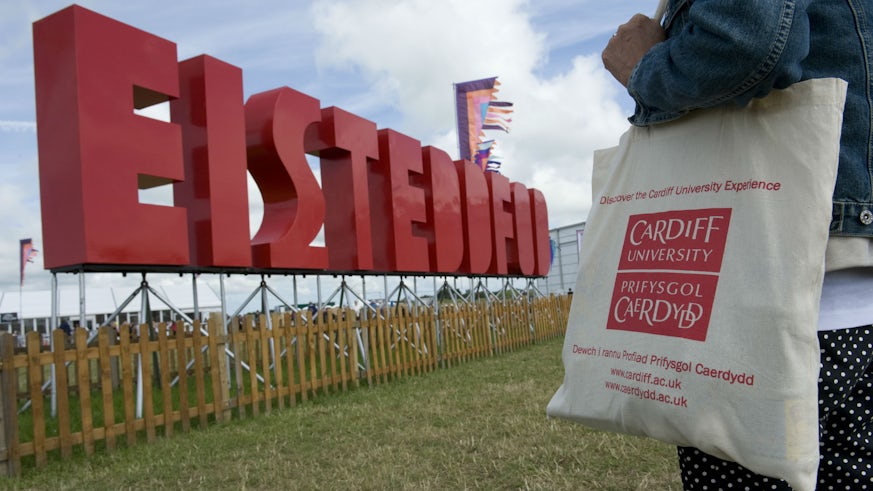Eisteddfod 2018
6 August 2018

School encourages reflection from legendary Medieval epics to the contemporary collection of the modern Welsh language
There’s a local flavour to Cardiff University’s activities at the 2018 National Eisteddfod as the capital city hosts the country’s largest cultural festival – with experts in Literature, Language and Philosophy sharing their expertise in language, literature and philosophy.
Talks and discussions have been inspired by Cardiff’s culture, history, creativity and wildlife in the first Eisteddod in the capital for a decade.
Among a host of University experts are three leading academics from the School of English, Communication and Philosophy: Professor Katie Gramich, Dr Tomos Owen and Dr Huw Williams.
Head of the School, Professor Katie Gramich has the honour of giving the Learned Society of Wales lecture this year. In Land of Ghosts? Spectrality in Welsh literature from Kate Roberts to Mihangel Morgan (Wednesday 8 August 11:30, Societies Tent), she explores the use of the motif of ghosts in a selection of modern Welsh literature, suggesting that writers use spectrality, the term referring to all things ghostly, to explore contemporary issues in Welsh society such as gender, sexuality, property and belonging.
Professor Gramich joins Dr Tomos Owen and Professor Sioned Davies in Translating the literature of the Middle Ages (Thursday 9 August, 16:00, University Tent).
Following the recent publishing of two major translations by Gramich and Davies, the session examines the work of Medieval female Welsh poet Gwerful Mechain and The Mabinogion, the legendary epic collection of medieval Welsh tales which has long since inspired Arthurian romance and Celtic mythology.
Senior Lecturer in Philosophy, Dr Huw Williams co-leads the session Working with Grangetown (Friday 10 August, 14:00, University Tent). The presentation explains how the University’s Community Gateway has evolved, leading to the creation of a Philosophy Café examining contemporary issues such as multiculturalism and Welsh identity.
Throughout #steddfod2018, visitors will have opportunities to contribute to and discuss the National Corpus of Contemporary Welsh (CorCenCC) with experts from the revolutionary interdisciplinary project. CorCenCC is the world’s first project to collect language data representing modern Welsh, making community-driven use of mobile and digital technologies to enable public collaboration.
The University is running a wide-ranging programme at Eisteddfod 2018 (3-11 August, Cardiff Bay). For latest information, follow #CUEisteddfod2018.


